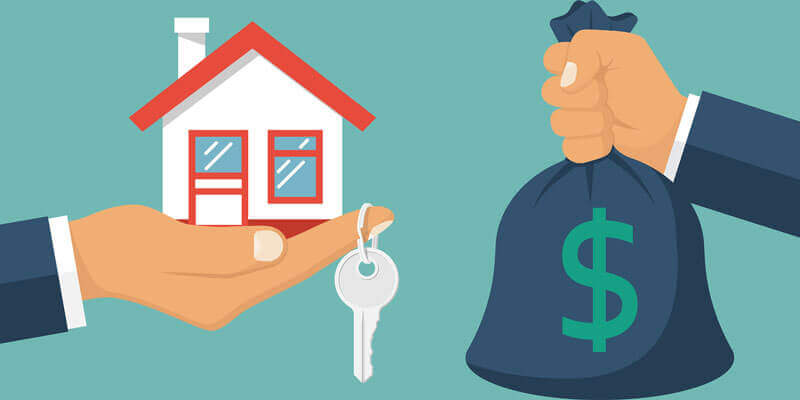What does it mean to be house rich cash poor?
To be “house rich, cash poor” refers to a situation where a person owns a valuable property, typically a home, but struggles with day-to-day financial liquidity. Essentially, they have a significant portion of their wealth tied up in their house, leaving them with little available cash to cover living expenses, emergencies, or discretionary spending.
This often occurs when homeowners take on a large mortgage or own a home that has appreciated in value, but their income isn’t sufficient to comfortably manage their other financial needs. While they may have substantial equity in their property, they may feel financially constrained because their liquid assets (cash, savings) are limited.
What is an adequate percentage of income to pay in housing?
An adequate percentage of income to allocate toward housing expenses typically falls between 25% to 30% of your gross monthly income. This range is considered a general guideline to ensure that housing costs remain affordable while leaving enough room in your budget for other expenses, savings, and financial goals.
Breakdown:
- 25%: A conservative target, leaving more income available for savings, investments, and discretionary spending.
- 30%: A common guideline recommended by financial experts and lenders, ensuring housing costs are manageable while still allowing room for other financial obligations.
Considerations:
- Location: In high-cost areas, such as large cities, people may spend a higher percentage on housing.
- Other Debts: If you have significant debt, it’s better to aim for a lower housing percentage.
- Personal Goals: If you prioritize aggressive savings or investments, you might choose to spend less on housing.
Adjusting your housing budget to your personal financial situation is essential to avoid becoming “house rich, cash poor.”
Don’t be seduced by the idea of being a homeowner
If you have kids and/or lots of debt, then paying more than 1/3 of your income in housing may be too much.
Many people get entangled in the House Rich, Cash Poor situation when they decide to buy a house.
There is a misconception out there that we should buy as much house as the bank is willing to finance. This is a trap. You will be House Rich, Cash Poor and you will pay the consequences with a lot of deprivation in your life.
Only buy the house you can afford, and don’t think there is a stigma on not being a house owner. In fact, I think it is dumb to put all your money in one asset class.
Advantages of home renting vs. homeowning
- As a renter, you don’t have any responsibilities other than to pay your rent. Is the toilet not working properly? Call the landlord. He will fix it.
- Renters can move with ease. The maximum penalty for breaking a lease is 3 months of rent, but most people can sublease to someone else.
- Do you have a new member of the family? rent a bigger place? Did you break up with your boy/girlfriend? get a smaller place. Did you find a job in a different part of town? just move.
- Your money is not tied up in a property. You can invest it in the stock market and see it grow at a faster rate than real estate prices.
How to solve the House Rich, Cash Poor problem
- You can get a roommate. If you get a roommate, your housing expenses drop right away.
- Look for ways to earn more money. I don’t like this idea. We become slaves of our consumption, we work more to spend more. Bad idea. But it’s an idea nevertheless.
- Rent the guest room or the basement through Airbnb. I have been an Airbnb host for many years and I can attest that it’s a nice way to make extra cash. If you have any questions about this send me a message.
Consider Downsizing
If you want to make sure you focus on being able to improve your situation, one of the things you could try doing is downsizing. There are plenty of ways to benefit from this, and it allows you to cash in on your asset, move somewhere else, and have a bit of money in the bank leftover. If you want to make this work, one of the best things you can do to make this work for you is to get a fix and flip loan, and this is something that you need to be able to make the most of as much as possible. This lets you fix up any areas of the home that need to be tended to, before you are able to sell it for profit.
In conclusion, being “house rich, cash poor” is a common yet challenging financial scenario that many homeowners face. While homeownership is often viewed as a symbol of success, it’s essential to balance the allure of property ownership with your overall financial health. The key to avoiding this trap is to live within your means, make informed decisions about how much home you can afford, and remain flexible in your approach to housing. Renting can be a viable alternative, offering financial flexibility and fewer responsibilities, while creative solutions like Airbnb hosting or taking on a roommate can help ease financial strain. Ultimately, the goal is to find a balance that allows you to enjoy both the stability of a home and the freedom of financial liquidity.
Other real estate posts
- Interest rates: Variable rate or fix rate?
- Should You Buy a House? How Much Can You Afford?
- Why I prefer to rent as opposed to owning a property

Comments
One response to “Are you House Rich, Cash Poor?”
[…] Are you House Rich, Cash Poor? […]